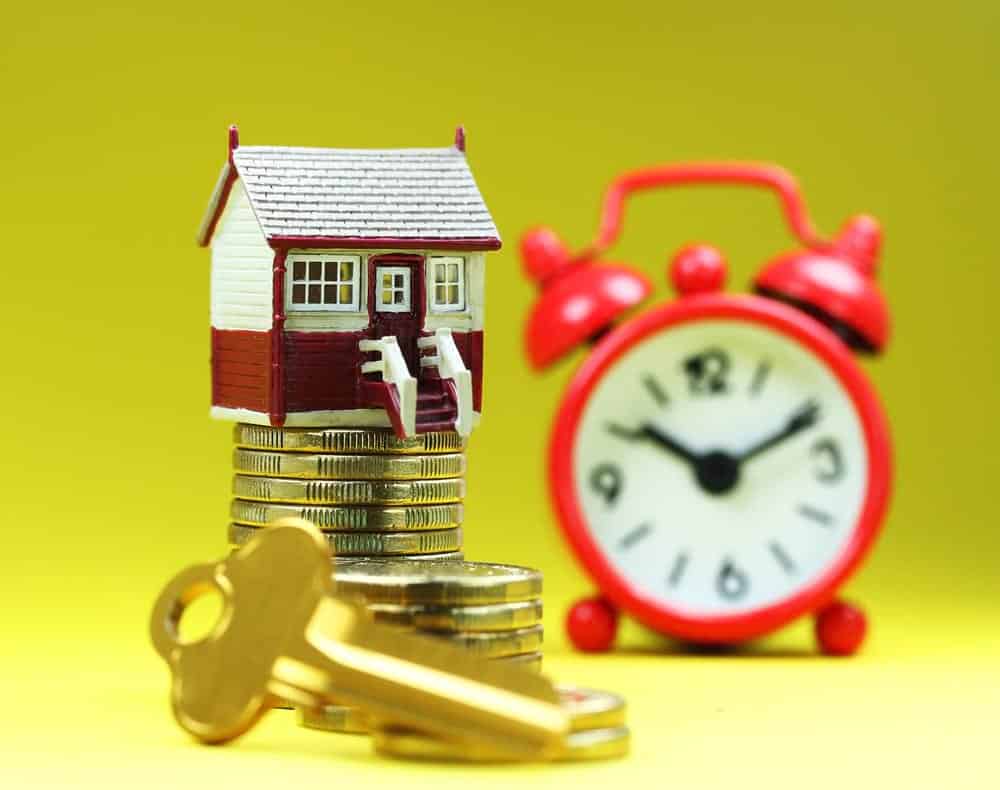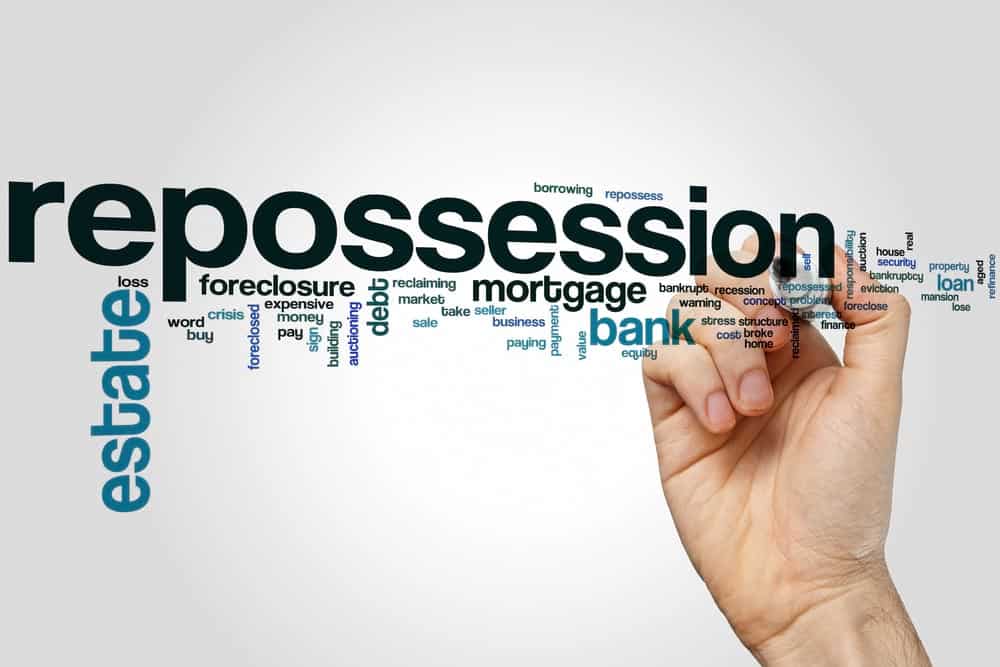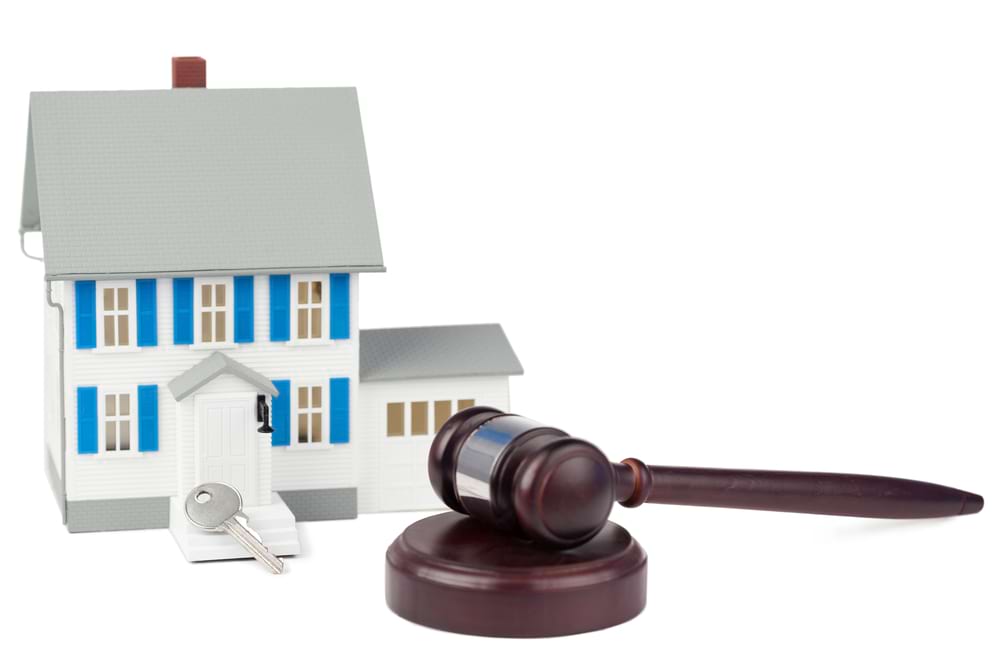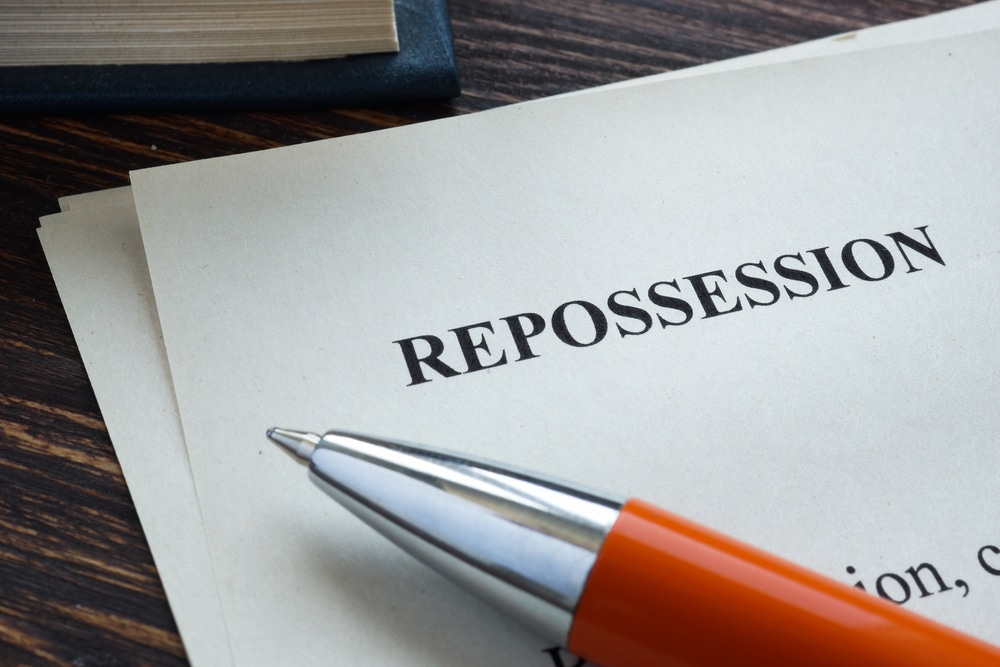Falling into mortgage arrears means you have missed more than one month of mortgage payments.
If the situation continues, your home could be repossessed.
Repossession is a last resort and lenders will work with you to try and avoid it.
However, it could still happen if an alternative solution is not found.
How many months mortgage arrears before repossession
If one mortgage payment is late and another becomes due, you are then in arrears. But repossession proceedings can’t begin until you’re three months in arrears.
Most mortgage lenders will try to help you get back on track before recording that a payment is late.
When they do it goes on your credit file for six years, which makes it harder to borrow money. Once you’re in arrears, lenders are still obliged to work with you to come up with a solution.
It’s better for them if you repay the mortgage, so they will hold off repossession until they’ve run out of options.
But if repossession goes ahead it can take up to nine months or more from the moment you go into arrears to the moment you have to leave your home.
What to do if you’re struggling to pay your mortgage
As soon as you think you might miss a payment, or if you have missed a payment, you should talk to your mortgage lender. They can help in a number of ways such as:
- Delaying interest payments.
- Extending how long you have to pay your mortgage back.
- Changing your mortgage to interest only or one with a lower interest rate.
- Adding missed payments to your mortgage to be paid later.
But they can only do this if you’re communicating with them, so it’s important to make that call. If you’re considering one of these options, check what charges might be involved.
Other help you can access
Mortgage payment protection
If you bought mortgage payment protection insurance this is the time to use it.
This kind of policy is usually only a short term fix, to help tide you offer until your finances are in better shape. They’ve also been mis-sold in the past, so look into the small print if you are thinking of getting one.
Government help
In some cases, the government can help. Its support for mortgage interest (SMI) scheme will pay the interest on the first £200,000 of your mortgage as a loan that must be paid back when the home is sold.
It’s only available to those receiving a benefit such as income support, job seekers allowance and universal credit.
Once these benefits stop, perhaps because you’ve returned to work, the SMI payments stop. You are not eligible if you have more than £16,000 in savings or own another home.
Debt management companies
There are many different debt management companies in the UK. These can help give you the advice and services you need to get out of debt.
Can I sell my house with mortgage arrears?
If you are in negative equity – when the value of your home is less than the mortgage on it – this may not be the best option.
But if you own some of your home outright, selling it could release a substantial amount of money that could help you out of a tricky financial situation.
It’s also better to sell a home yourself than wait for repossession.
Once a mortgage company owns the property they will look for a quick sale that covers their costs rather than wait for the best price on the open market.
Organising the sale of a home in difficult circumstances can be daunting, which is why we’re a good option for many.
We can buy your home in just seven days if necessary and will take on many of the hassles involved, such as working with solicitors and organising valuations.
What’s more, we’ll cover all the costs. By selling quickly and paying off your mortgage you’ll protect your credit rating and avoid accumulating any more mortgage arrears.
The repossession process
If all the alternatives have been exhausted and you are unable to repay your mortgage, the lender will start repossession proceedings.
They’ll provide you with a list of missed payments, arrears and the outstanding amount you owe before applying to court for a repossession order.
You’ll be sent paperwork from the court which will include when and where your hearing is and forms to fill in and return about your situation.
Before that date it’s worth speaking to an expert who can look into other solutions and help you prepare for your appearance.
You should keep talking to your lender during this time. If you get a new job, inherit some money or agree a sale they should consider postponing or stopping proceedings.
During the hearing
At a repossession hearing, you will have a chance to explain why your home shouldn’t be repossessed. Your mortgage lender will argue it should be.
The judge will then make a judgement. This could be an outright possession order, which means you must leave your home and usually comes into effect after 28 days.
If during this time your circumstances change you can apply back to court for a new judgement.
Alternatively, a suspended possession order allows you to stay in your home if you agree to a repayment plan to clear what you owe.
Occasionally the judge may grant an adjournment to allow you or your lender extra time, perhaps to seek more legal advice or gather further information. Or a dismissal if, for example, you have cleared the arrears.
Get in touch
Repossession is an unsettling experience that you may be able to avoid by working with us.
At We Buy Any Home, we’re used to dealing with a variety of challenging home selling situations and understand how to make them go smoothly both practically and emotionally.




















